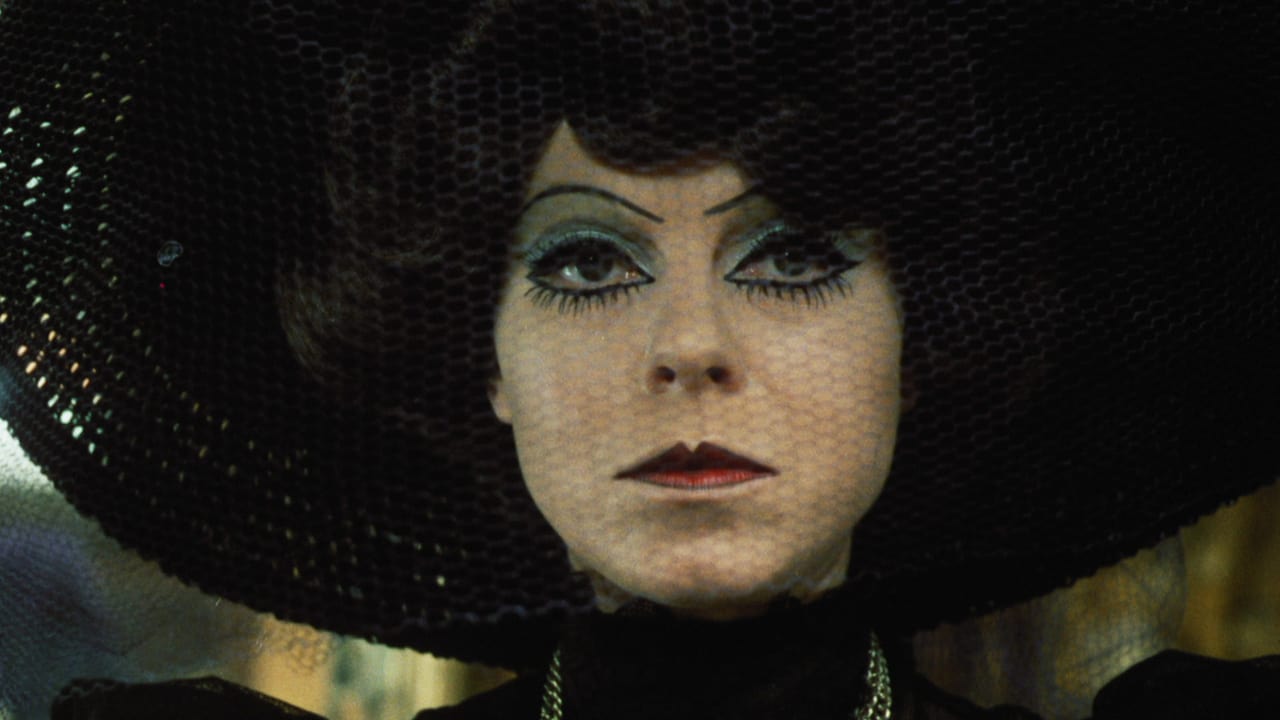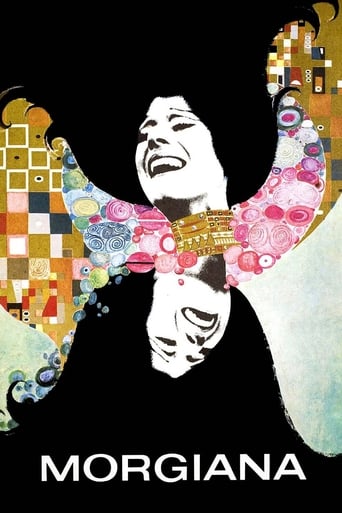Tedfoldol
everything you have heard about this movie is true.
Teringer
An Exercise In Nonsense
Beystiman
It's fun, it's light, [but] it has a hard time when its tries to get heavy.
Afouotos
Although it has its amusing moments, in eneral the plot does not convince.
morrison-dylan-fan
Originally planning to watch Karel Kachyna's Long Live the Republic got stopped in their tracks,when the DVD kept jamming up in the player.Since I had planned to watch the movie after seeing Horseman,I decided that it was time to meet Morgiana.The plot:After the sudden death of their dad,sisters Klára and Viktoria attend the reading of the will.Caught completely by surprise, Viktoria discovers that their dad has left most of the riches to Klára.Shortly after the reading of the will, Klára starts to go out with a guy who Viktoria has secretly had her eyes on for ages.Burning with rage,Viktoria picks up their pet cat Morgiana,and starts to tell Morgiana her plans to take from Klára what is rightfully hers.View on the film:Whilst the print does have some noticeable dirt,Second Run still run with a strong transfer which picks up the notes of Lubos Fiser's spidery score with a clarity and also showcases the depth of vision for this Gothic nightmare.Breaking out from the grainy black and white world of The Cremator,co-writer/(along with Vladimír Bor) director Juraj Herz leaps into colour with an infectious energy.Opening with clipped paintings,Herz and cinematographer Jaroslav Kucera crush the screen with vibrant reds and charcoal blacks which under a cloud of mist reveal the Gothic Horror Melodrama that the sisters are entwined in with a delicious richness. Unexpectedly dipping into the psychedelic,Herz shows an amazingly playful side which jumps from an ultra-stylised "light show" and Giallo-style first person tracking shot, (with black gloves!)to reflecting in-camera special effects which highlight the deadly differences between each sister.Getting Alexander Grin's (whose books were banned by the Soviet Union for "not promoting socialism") novel from out of the cave,the screenplay by Bor & Herz cleverly uses the sisters to link the genres that the movie is crossing,as Klara's ordeal keeps the Melodrama bubble away whilst Viktoria's sting makes the Gothic chills strike with a mysterious atmosphere.Making sure that the sisters don't get to keep all the fun to themselves,the writers edge out their Gothic dream with wonderfully quirky sides,from a cat who witnesses everything,to a dashing lover who injects Viktoria with burning eyes of jealousy. Reuniting with Herz after making Oil Lamps a year earlier, Iva Janžurová gives an exquisite performance as Klára & Viktoria.Taking on both roles, Janzurová lavishly gives each sister a distinctive quality,thanks to Janzurová soaking Klára in a care-free mood which is crushed by Viktoria's blistering eyes and twitch of a furious lip,as Viktoria tells her secrets to the pet Morgiana.
lasttimeisaw
"The draught will kill me one day", Viktoria (Janzurová) fussily complains about the opening window, her words will actually come true, through a tenuously linked poetic justice, it is a symbol of Morgiana's revenge.The story of this Czechoslovakian drama is rather minimal, set in an unspecified period time, Viktoria is plotting to murder her twin sister Klara (also played by Janzurová, but distinct with a light-colored hairdo and dress-code from Viktoria's black widow outfit, yet equally ornamented by the over-saturated make-up) through slow poisoning, since the latter inherits most of their father's property. Then, who is Morgiana? It is Viktoria's pet black cat, and one of the tricks of this garish sibling-rivalry tale is the fish-eyed angle from Morgiana's viewpoint, a nifty bit of sleight-of-hand, will become a key takeaway from the film, apart from its Klimt-esque opening credits and striking Gothic grandeur, however, the same admiration cannot be referred to the lurid hallucination shots.Morgiana is a loyal witness of its mistress' evil plan, but unwittingly its own life happen to be the victim of its collateral damage. The said window is Morgiana's entrance into the room, and due to the maid's casual gesture, it is opened at that particular moment, through the ripple effect, the draught and the bang of the door, it counteracts Viktoria's carefully calculated pseudo- suicidal bluff. Apart from this well-conceived comeuppance, the plot is amateur at its core, namely, the jejune involvement of a blackmailer is a major distraction from the central suspense, whether Klara will die or not.It is not just wealth prompts Viktoria's motivation, the suppressed sexual desire is the culprit here, Klara is a sweetheart, a perfect specimen of a desirable maiden, inadvertently wins over everyone's heart including those Viktoria feels attracted to. Director Juraj Herz expressly accentuates Viktoria's jealousy and dyed-in-the-wool conservative reckoning towards sex and sensuality, with a terrific score fittingly hones up the menacing but otherworldly ambiance.Performances are fairly attenuated to be functional with a theatrical stiffness, save Janzurová, who benefits greatly from playing both twins, gives an exceptionally expressive split image divided by polarised personalities, also credits must be given to her cosmetic and costume props.After all, Herz manifestly leaves his eccentric directorial marks in this film (particularly impressive is the shots where both twins appear in the same frame), MORGIANA is an inviting piece of curio bodes well for further digging into his body of work.
timmy_501
Like his somewhat more famous Cremator, Juraj Herz's Morgiana is primarily interesting because of its unique visual style. In Morgiana, Herz uses fisheye lenses generously and he also gets a lot of mileage out of unusual camera angles. These aren't the only things that give the film visual interest, however: each frame is packed full of Gothic details as it's primarily set in a couple of ornate Victorian style mansions. Further, there are several psychedelic point of view shots that indicate a character's hallucinations and some wild pans to represent disorientation. The plot of Morgiana focuses on a pair of sisters, Klara and Viktorie, who each inherit half of their father's large estate. The two sisters are essentially opposite, which is conveyed both by their behavior-Klara is happy and popular while Viktorie is depressed and lonely-and by their looks as Klara wears bright colors while Viktorie wears dark colors. Viktorie becomes jealous of her sister who has the better life and better inheritance and decides to poison her, which causes her to hallucinate and waste away. Meanwhile Viktorie becomes increasingly unable to hide her guilt. There's nothing particularly novel or clever about the plot as is (though Herz reportedly did have a clever twist in mind that he wasn't allowed to film) but the visuals enrich the narrative as well, particularly the way Herz develops different motifs for the different sisters. Overall, Morgiana is a masterpiece that should be especially appealing to fans of The Cremator or other Czech New Wave films such as Valerie and Her Week of Wonders.
ofumalow
Juraj Herz's 1971 Morgiana is less Carroll-gone-softcore than Edward Gorey as filmed by Ken Russell-a sardonic chunk of Victorian penny-dreadful melodrama tweaked to new levels of aesthetic and emotional hysteria. Jealous of her vapidly "good" sister's popularity, poisonous Viktoria doses pretty Klara's tea with a slow-acting fatal substance. As the latter grows hysterically weak, the former finds success increasingly compromised by guilt, blackmail, and the pesky need to kill others lest she be exposed. The women here are painted as elaborately as psychedelic-drag-queen Cockettes, and the purple extremity of their predicament is drawn in equally bizarre/extravagant terms. It's like a dress-up, younger-generation version of Baby Jane?, set in an ornamental snow globe.

